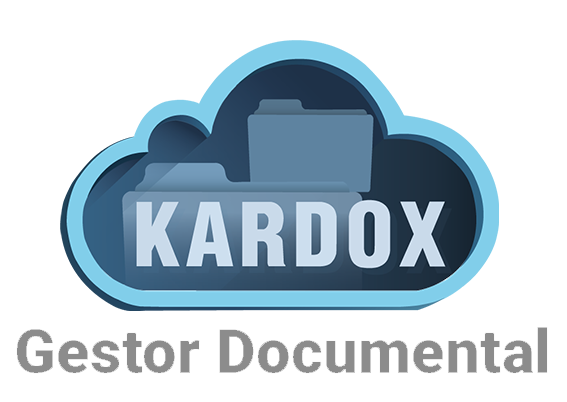However, depending on the extent of the damage already done, it may not reverse all effects completely. It’s always best to speak with your healthcare provider about how quitting drinking may impact your individual situation. It’s important to note that these recommendations inspirational addiction recovery quotes may vary based on individual factors such as age, weight, and overall health.
Factors That Increase the Risk
Moderation is crucial when it comes to alcohol consumption and its effects on the gallbladder. Excessive alcohol intake can have detrimental effects on the gallbladder, increasing the risk of gallbladder problems such as gallstones and inflammation. Gallstones are typically formed when bile, a digestive fluid produced by the liver, contains too much cholesterol or bilirubin. Understanding the relationship between alcohol and the gallbladder is essential for making informed decisions about alcohol consumption. It’s always advisable to consult with a healthcare professional if you have specific concerns or a history of gallbladder problems. Regular exercise is generally recommended for maintaining good overall health.
Gallbladder disease without stones
- Remember, seeking medical advice in a timely manner is crucial to address any potential gallbladder problems and ensure your overall well-being.
- However, when they block the ducts of your biliary system, they can cause pain in the upper right part of your abdomen.
- Alcohol consumption can have a significant impact on the health of the gallbladder.
- When the gallbladder becomes inflamed, individuals may experience severe abdominal pain, fever, nausea, and vomiting.
- Excessive alcohol consumption can lead to liver damage, which in turn can affect the gallbladder.
- Gallstones are solid deposits that form in the gallbladder, which can lead to various complications and discomfort.
Alcohol abuse is a significant risk factor for the development of acute pancreatitis. When alcohol is consumed in large quantities, it stimulates the pancreas to produce digestive enzymes prematurely. These enzymes can then leak into the pancreas, leading to inflammation and tissue damage. Symptoms of acute pancreatitis include severe abdominal pain, nausea, vomiting, and fever. It’s important to note that while alcohol consumption can increase the risk of gallstones, other factors such as age, gender, obesity, and family history also play a role.
Common Gallbladder Issues
Excessive alcohol consumption, on the other hand, refers to consuming alcohol in quantities that exceed these guidelines. When the balance of substances such as cholesterol, bile salts, and bilirubin is disrupted in the gallbladder, gallstones can form. These stones can cause various symptoms, including abdominal pain, nausea, and vomiting. In some cases, gallstones may require medical intervention, such as surgical removal of the gallbladder.
Additionally, excessive alcohol consumption can lead to inflammation of the gallbladder, a condition known as cholecystitis. Alcohol consumption can also aggravate existing gallbladder diseases, such as cholecystitis (inflammation of the gallbladder) or cholelithiasis (presence of gallstones). Alcohol is known to stimulate the production of digestive enzymes and increase the contraction of the gallbladder.
It’s always advisable to consult with a healthcare professional to determine the most suitable alcohol consumption limits for your specific situation. Gallstones are deposits of cholesterol or calcium salt that harden and accumulate in your gallbladder. They can cause a blockage in the bile duct from the liver maverick sober living to the small intestine and cause bile to build up in the liver. But that doesn’t mean you should drink alcohol in excessive amounts to try and keep your gallbladder healthy. Moderate alcohol consumption refers to the consumption of alcohol within recommended limits.
It’s important to note that gallbladder problems related to alcohol consumption are more commonly seen in individuals with a history of heavy and prolonged alcohol use. Moderate alcohol consumption, on the other hand, is less likely to have a significant impact on gallbladder health. Quitting alcohol may help improve the overall health of the liver and gallbladder. However, it may not necessarily reverse any damage that has already been done. It is important to consult a healthcare provider for personalized advice on how to manage any existing conditions.
What does moderate alcohol consumption mean?
The overall risk of developing gallstones is influenced by a combination of these factors. The gallbladder plays a crucial role in our digestive system, but it can be susceptible to various conditions that can affect its normal functioning. One such condition is the formation of gallstones, which can lead to significant health issues.
What Happens in Alcohol Rehab?
The excessive consumption of alcohol can cause the bile ducts to become blocked or irritated, preventing the normal flow of bile. This can lead to the accumulation of bile in the gallbladder, causing inflammation and pain. Symptoms of alcoholic cholecystitis may include severe abdominal pain, fever, nausea, and vomiting.
While alcohol consumption should be moderated, it’s important to also address other factors and make choices that promote a healthy gallbladder. Excessive alcohol consumption can lead to various health issues, including liver disease, which can indirectly affect gallbladder health. It is important to note that alcoholic cholecystitis can be a serious condition that requires medical attention. If you experience symptoms of cholecystitis, it is crucial to seek prompt medical advice for proper diagnosis and treatment.
Excessive alcohol consumption can trigger this inflammation, leading to various complications. Furthermore, alcohol-related inflammation of the gallbladder, known as alcoholic cholecystitis, can occur. This condition is characterized by the inflammation and swelling of the gallbladder, often causing abdominal pain, fever, and nausea.
They can range in size from as small as a grain of sand to as does alcohol bother gallbladder large as a golf ball. Gallstones are typically made up of cholesterol or bilirubin, a pigment produced by the liver. Effective budgeting, understanding insurance details, and exploring additional financial resources are essential for minimizing the financial burden of inpatient rehab. This article explores whether people can drink alcohol without a gallbladder. Daily drinking can have serious consequences for a person’s health, both in the short- and long-term. Many of the effects of drinking every day can be reversed through early intervention.
